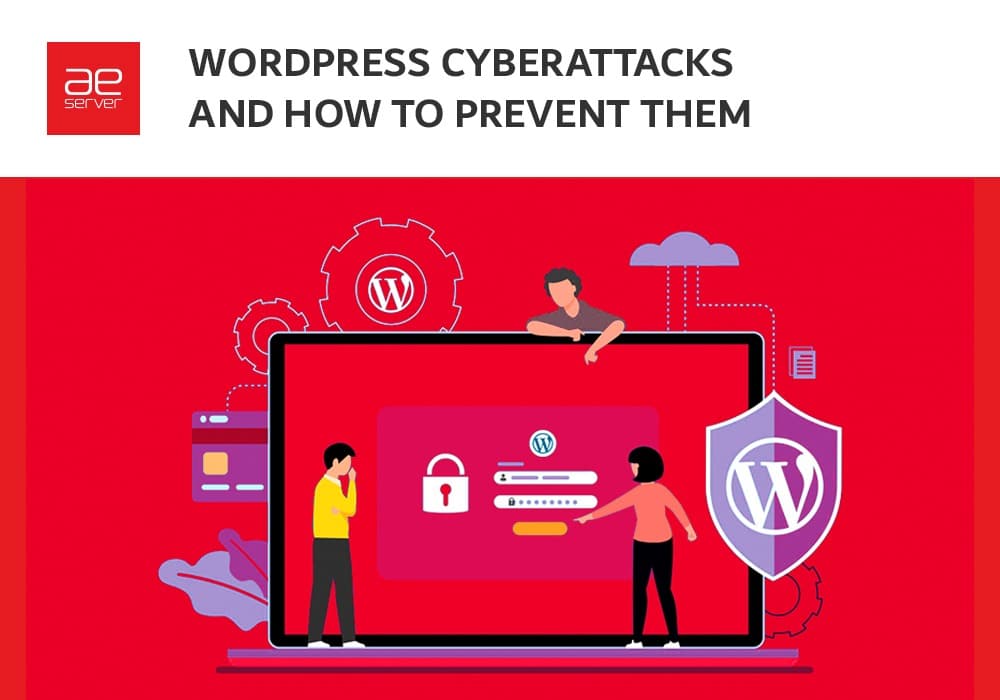
WordPress Cyberattacks and How to Prevent Them
WordPress truly powers the web. But with its popularity, it comes with some significant challenges, including security vulnerabilities and the risk of cyber attacks. Hackers and malicious actors often target WordPress websites because of their popularity, making it crucial for website owners to take appropriate measures to protect them from potential security breaches. No matter how big or small your website is, you could become the target of a cyber attack. However, with the right security measures, using WordPress and enjoying all its benefits while keeping your website secure is still possible.
Fortunately, There are several ways to make your website less vulnerable to attack so you can feel more confident. In this post, we’ll explain the most common types of WordPress cyberattacks and how to protect against them.
Brute Force Attacks
Brute force is the most common type of cyber attack that can be used against WordPress websites. In this attack, a hacker tries to guess your password with multiple attempts. It looks simple unless you realize free tools and botnets are available for this purpose. It has become easier for hackers to launch brute force attacks and guess passwords at an alarming rate.
Using strong and unique passwords for your WordPress site is the best protection against these attacks.
Additionally, regularly rotating your passwords can make it more complex for hackers to gain unauthorized access to your website. A password manager can be a useful tool in creating and managing strong passwords, and it’s important to ensure that all website users follow these best practices to keep your WordPress site secure. Remember, a weak password can be the weakest link in your website’s security.
Related: Does My Website Need SSL? Know Why It Really Matters!
XSS (Cross-Site Scripting) Attacks
XSS attacks are a rapidly increasing form of threat. It works by injecting malicious code into a website. In WordPress, this can happen through the comments section or other areas where user input is accepted. An attacker can inject malicious code, such as JavaScript, that can steal login credentials, inject malware, or steal user cookies.
Affiliate sites are particularly vulnerable to XSS attacks, as attackers can use them to steal income generated by the site.
To protect against XSS attacks, it is important to keep a watchful eye on all areas of your site where users can leave comments or input information. Quickly deleting any suspicious comments can help prevent malicious code from being injected into your website. Additionally, using security tools like Akismet can help automate this process, prevent malicious content from being posted to your website, and ensure that your website is updated with the latest security patches. Several other tools are available, such as web application firewalls, to help protect against XSS attacks.
Related: Small Business Success with WordPress: A Growth Guide
PHP Vulnerabilities
WordPress is built on PHP, and like all other programming languages, PHP has its own set of vulnerabilities that hackers can exploit. In WordPress, PHP is used to manage the site’s pages and content, as well as to authenticate users and manage their login credentials.
This important data is stored in a filename “wp-config.php”, the most important file of the entire WordPress and the most commonly attacked. Hackers who gain access to this file can potentially compromise your entire WordPress site. That’s why keeping this file secure and protected from unauthorized access is crucial.
To protect this file, consider moving the wp-config.php file out of the root directory, which means that the file path to it is not the default one. This way, even if a hacker gains access to your root directory, they cannot access the wp-config.php file.
Another way to protect the wp-config.php file is to change its permissions. By default, the file has permissions that allow read and write access to the owner and read access to the group and public. You can change the permissions to make the file read-only for all users except the owner, preventing anyone from making changes to the file. However, it would help if you were careful when making changes to file permissions, as incorrect permissions can cause your site to break or become inaccessible.
An extra level of protection against PHP vulnerabilities is keeping your plugins up to date.
Related: SSL vs TLS: The Key Differences
SQL Injection
SQL injection attacks are a serious threat to WordPress sites. SQL is a language used to run many aspects of your WordPress site, including the management of users. Hackers can exploit this by using a data field on your site to send malicious SQL code to your servers, allowing them to take control of your site or add a new administrative user.
To protect against SQL injection attacks, it’s essential to use high-quality WordPress plugins and themes built with this type of attack in mind. Avoid using plugins or themes that don’t have a large user base, aren’t well-reviewed, or are old and no longer maintained. Additionally, it’s essential to regularly check the plugins you’re using to ensure they are updated and not vulnerable to SQL injection attacks.
Related: What Is a Firewall? A Guide to Different Types of Firewalls
DDoS Attacks
Distributed Denial of Service attacks are some of the oldest attacks that have been around since the internet was invented. DDoS attacks involve overwhelming a server or network with traffic from multiple sources, making it impossible to respond to legitimate requests. The goal is to make the targeted website or service unavailable to its users. This is usually accomplished using a botnet, a network of infected computers controlled by the attacker and used to flood the targeted site with traffic.
Once your server crashes, it can be vulnerable to further attacks, including those that can compromise the site’s login credentials. Moreover, when a site is offline, businesses can lose money and customers as users cannot access their website or make purchases.
Most WordPress site owners don’t directly manage the servers, so preventing DDoS attacks relies on your web host. The best WordPress host offers robust DDoS protection and has a good reputation for keeping websites safe from cyberattacks.
You can also take extra steps to protect your site from DDoS attacks, such as implementing a CDN, monitoring your traffic, and using a firewall.
Related: Dedicated IP Address vs Shared IP Address: Which Should You Choose?
Protect Your WordPress Site Today
Cybersecurity is an ever-evolving field requiring constant vigilance to stay ahead of the latest threats. Even the most well-protected websites and systems can still fall victim to cyber-attacks.
While it seems like a lot of work to ensure the protection of your WordPress site, it’s better to be safe than sorry. The simple tips above, a trusted security plugin and a strong password will help you defeat the common types of attacks against your site.
Just remember that it’s an ongoing process in your website maintenance. And if you are looking for a place to host your WordPress site, check out Managed WordPress hosting from AEserver.



